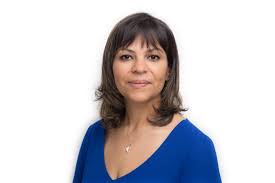Canon Expands ‘Women Who Empower’ Program Across Central, North Africa and Middle East
Global photography equipment manufacturer Canon is rolling out newer educational courses, workshops and activities to support women empowerment across Central, North Africa and the Middle East. This is part of an on-going effort to augment, boost and celebrate female empowerment in the creative industries. To this end, Canon has elevated its ‘Women Who Empower’ program with newer educational courses, webinars and mentorship opportunities along with celebrating its ten selected winners from the Middle-East, Central and North Africa regions.
This is owing to the outstanding success and the remarkable response received for the ‘Women Who Empower’ initiative, the company kicked off its ‘Transform and Elevate’ webinar workshops in association with Transform8 to support women entrepreneurs to grow their business and reach their maximum potential.

The webinar series that started this September and plans to go on till March 2022, will delve deep into various aspects associated with the humanitarian side of leadership, with each month bringing in a new theme for learning and discussion aimed at providing engaging, educational, informative and impactful takeaways to support the entrepreneurial journey of participants. Additionally, two lucky winners will be selected each month to receive two leadership coaching sessions by a Transform8 coach. These sessions will present an excellent opportunity for the winners to dig deeper into topics of their choice, problem areas or skills they wish to hone further thus creating a valuable and thought-provoking experience.
Read also:Canon Launches Discovery Week In Nairobi
The September webinar session focused on time management skills whereas the October session is directed towards dealing with self-criticism during an entrepreneurial journey. The latter sessions for this year will be pivotal in developing mind management skills such as enhanced concentration and focus along with reduced stress and anxiety. Subsequently, the first webinar for 2022 will begin on the note of advancing social enterprising skills teaching participants the significance of building a business that cares about the society as well as the planet. Following suit, February and March 2022 webinars will lean towards evolving creativity skills via a session dedicated on rewiring the brain and another one on building mental resilience. The last session scheduled for the program will be anchored on the science of manifestation in business, divulging key points related to goal-setting and achievements.
A series of webinars will be organized by Chit Chat with Nat of Egypt and Al Sahm Women of Algeria which are female only platforms that address issues affecting women. Encouraging discussion and engagement, the topics of ‘Female Founders: Business building as a woman in the twenty-first century and strategies to move the needle in your business’ will be addressed. Canon has also joined hands with AWIEF to organize a series of three educational masterclasses to be held in October, November and December 2021, which will focus on topics related to the digital sector. The AWIEF Community is a digital platform and community focused on empowering women to achieve business success and economic power through provision of masterclass, e-learning, mentorship opportunities, networking events and more. The AWIEF-Canon masterclasses will be duly supported by the APO group and will leverage the already existing AWIEF community and network, in order to maximize the learning output for participants.
Read also :Egyptian Fintech Startup, Sympl, Secures Funding From A15
Speaking about the new additions of the program, Mai Youssef, Corporate Communications and Marketing Services Director of Canon Middle East, Central and North Africa and Turkey said, “The outstanding response received for our Women Who Empower initiative goes to show the amount of female talent we have across our region. We wanted to extend the program further to support more women entrepreneurs by providing mentorship, guidance and skill-building opportunities. We are excited to collaborate with Transform8 and AWIEF to provide learning platforms for women that can benefit them in their entrepreneurial journey.”
Kelechi Deca

Kelechi Deca has over two decades of media experience, he has traveled to over 77 countries reporting on multilateral development institutions, international business, trade, travels, culture, and diplomacy. He is also a petrol head with in-depth knowledge of automobiles and the auto industry



